
Find Help
More Items From Ergsy search
-

Can people with HIV lead normal lives?
Relevance: 100%
-
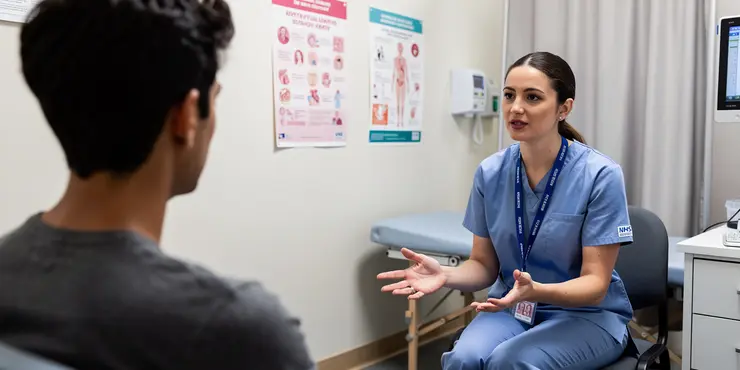
What is HIV?
Relevance: 66%
-

What is HIV / AIDS?
Relevance: 64%
-
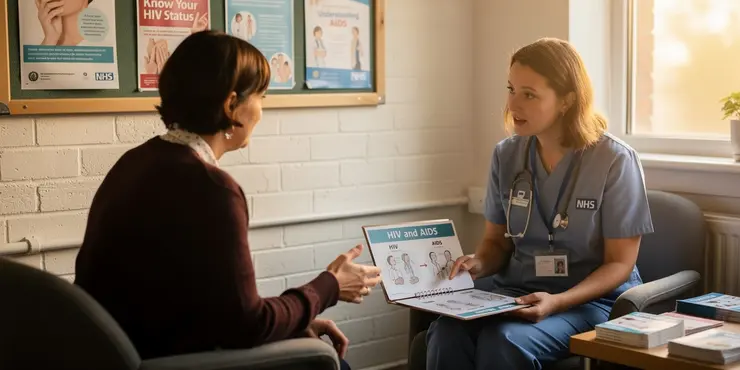
What is the difference between HIV and AIDS?
Relevance: 60%
-

HIV - My Story - Florence | NHS
Relevance: 59%
-

HIV and pregnancy | NHS
Relevance: 55%
-
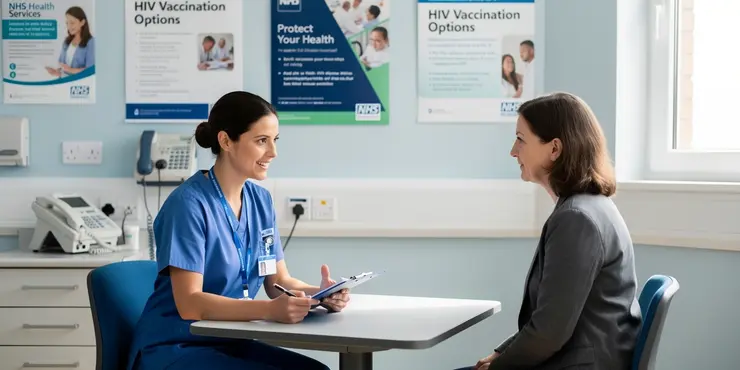
Are there vaccines available for HIV?
Relevance: 55%
-

Sexual Health - HIV Testing
Relevance: 54%
-
What role does stigma play in the HIV epidemic?
Relevance: 53%
-
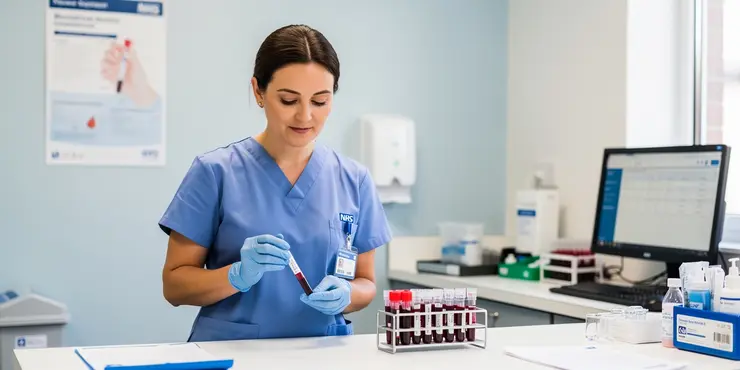
How is HIV diagnosed?
Relevance: 52%
-
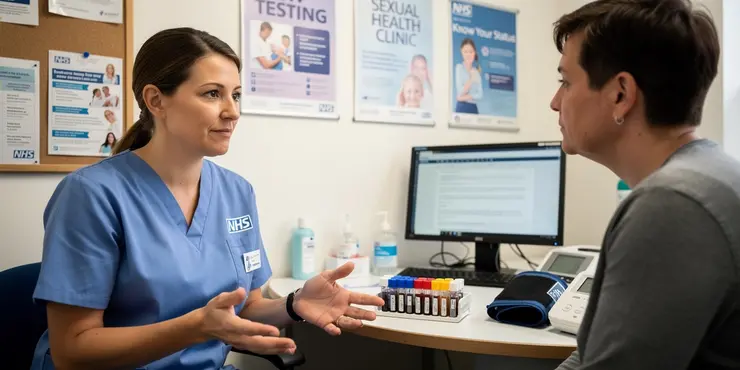
How is HIV transmitted?
Relevance: 52%
-
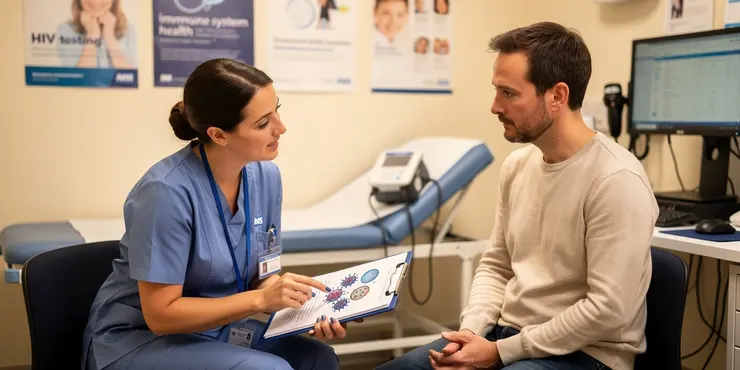
How does HIV affect the immune system?
Relevance: 51%
-

Is HIV only a concern for certain groups of people?
Relevance: 51%
-
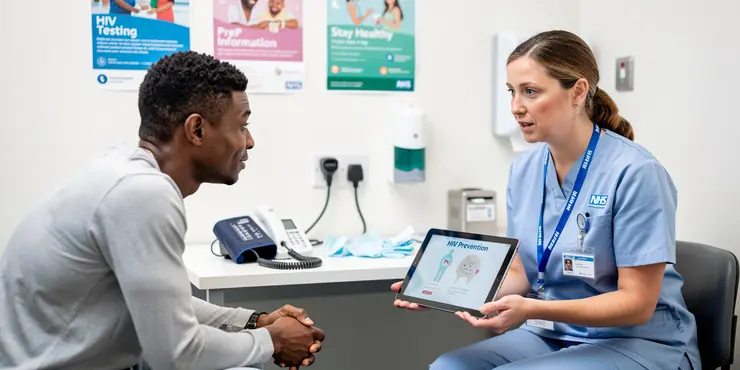
How can HIV be prevented?
Relevance: 50%
-
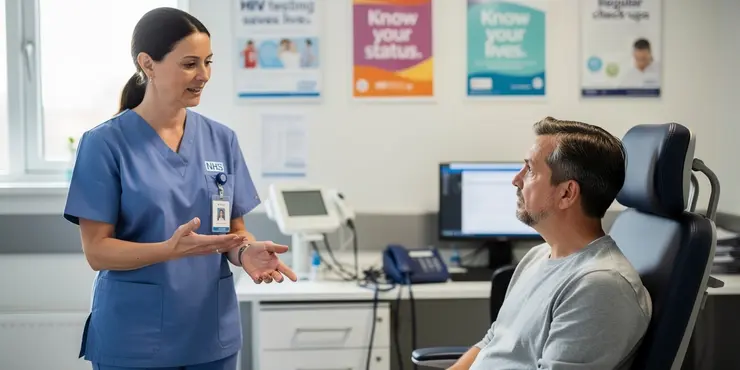
How often should someone get tested for HIV?
Relevance: 50%
-
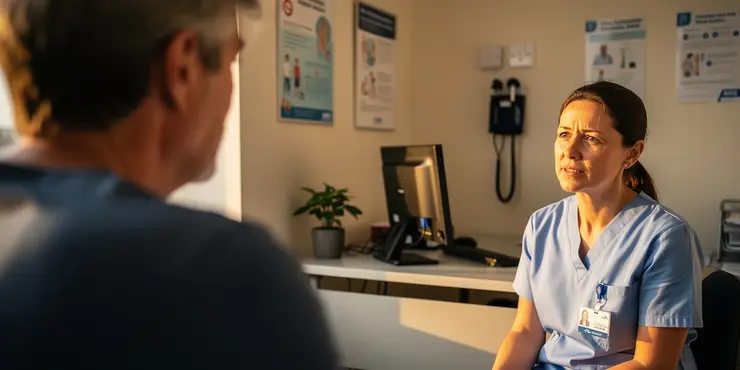
Can HIV be transmitted through insect bites?
Relevance: 47%
-
Can HIV be transmitted through blood transfusions?
Relevance: 46%
-
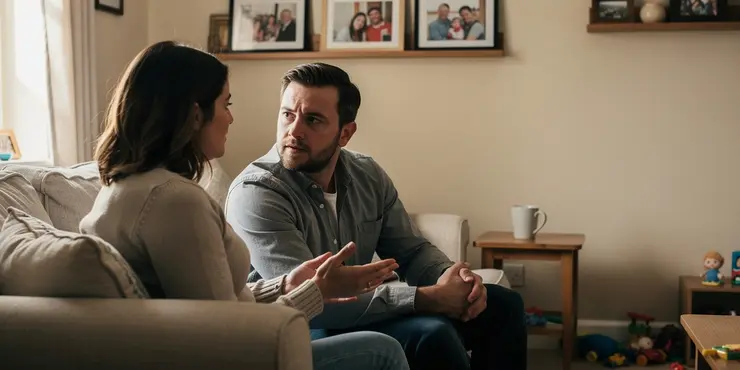
Is it safe for a partner of someone with HIV to have children?
Relevance: 46%
-
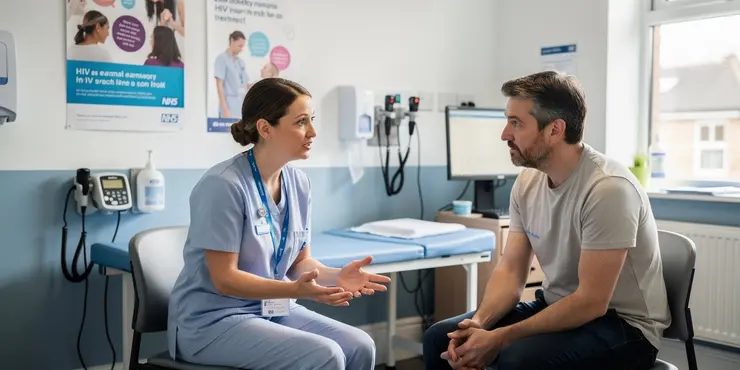
Can HIV be cured?
Relevance: 42%
-
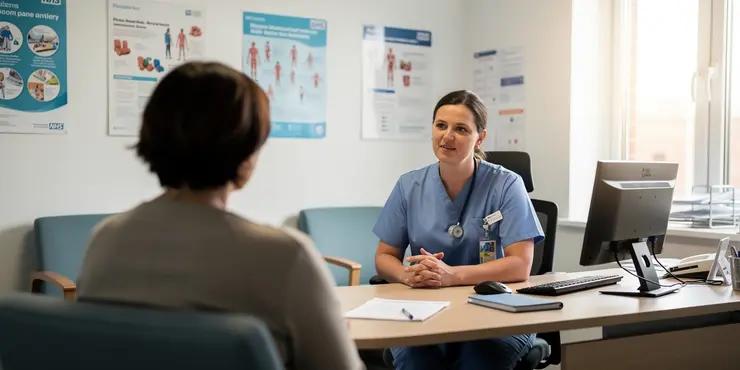
What are the symptoms of HIV?
Relevance: 38%
-
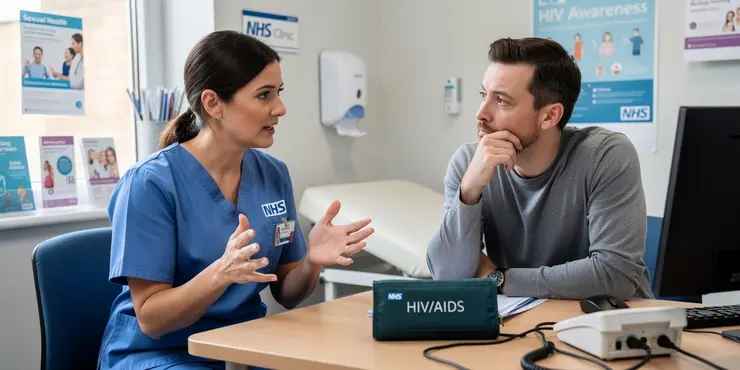
What is AIDS?
Relevance: 38%
-

What is the normal pension age for firefighters in the UK?
Relevance: 37%
-
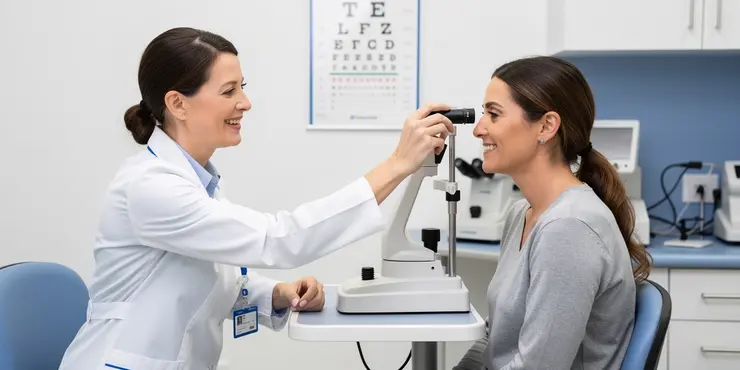
What is the normal range of intraocular pressure?
Relevance: 35%
-

Heart Failure : The normal heart
Relevance: 34%
-
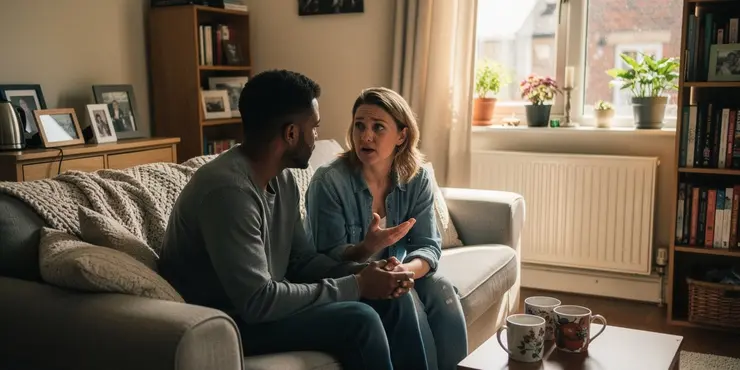
Is it normal to feel sad in a relationship sometimes?
Relevance: 34%
-

Is peeling a normal part of sunburn recovery?
Relevance: 33%
-
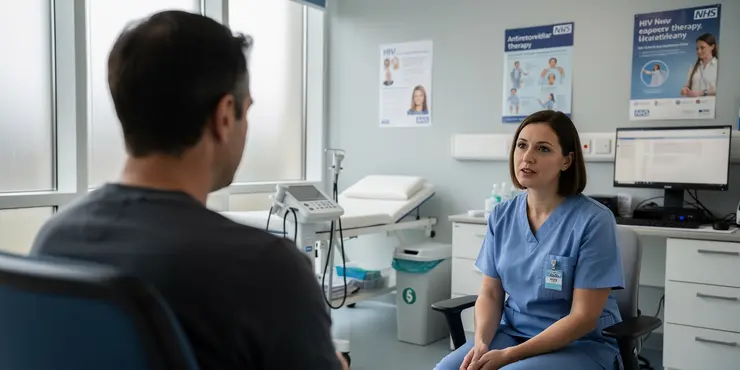
What is antiretroviral therapy (ART)?
Relevance: 33%
-

Can you live without an appendix?
Relevance: 32%
-

Living with Bipolar Disorder
Relevance: 32%
-
How can I tell the difference between normal teenage secrecy and potential grooming?
Relevance: 32%
-

Is the Living Wage Foundation's rate the same as the National Living Wage?
Relevance: 31%
-
Living with dementia | NHS
Relevance: 31%
-
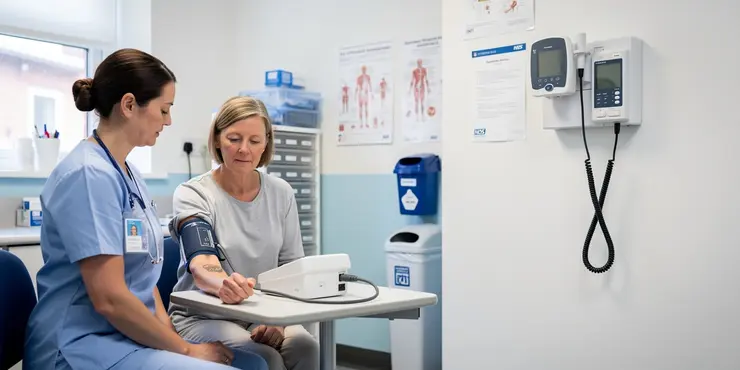
What are normal blood pressure ranges?
Relevance: 31%
-

When is it safe to return to normal activities after a concussion?
Relevance: 30%
-
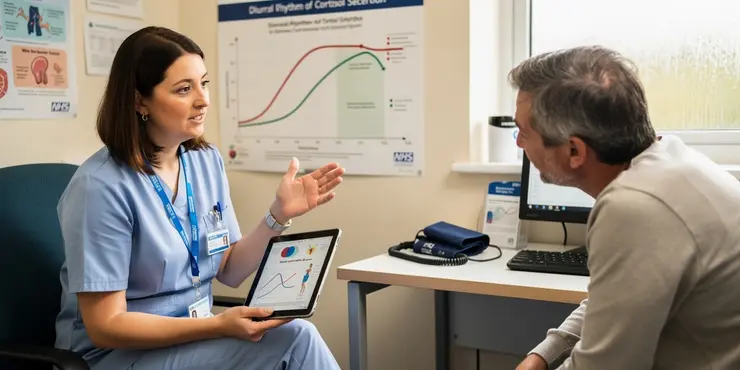
What is the normal pattern of cortisol secretion throughout the day?
Relevance: 29%
-
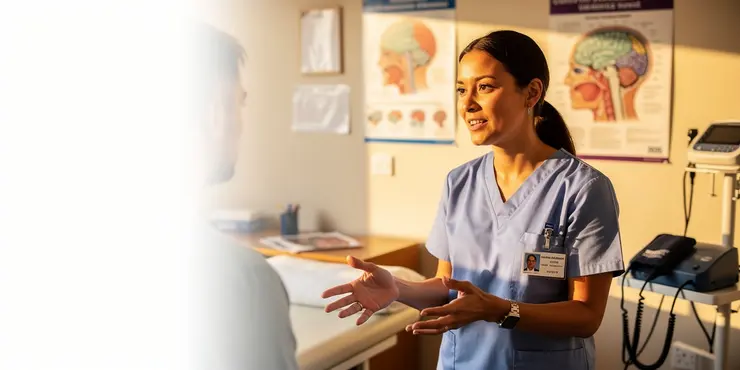
When is it safe to return to normal activities after a concussion?
Relevance: 29%
-

Who is eligible for the National Living Wage?
Relevance: 28%
-
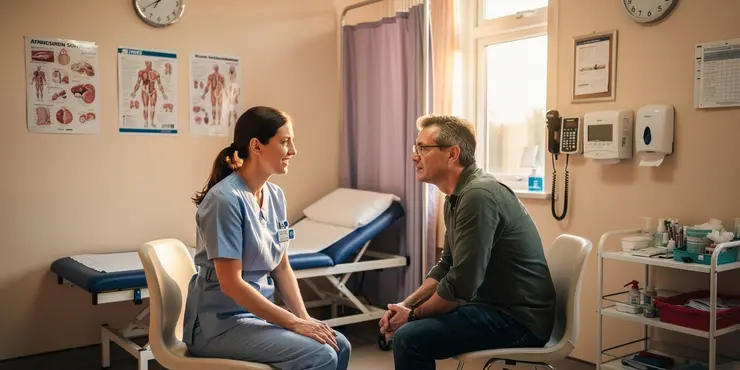
How is the National Living Wage calculated?
Relevance: 28%
-

UK national living wage increase 2026
Relevance: 28%
-
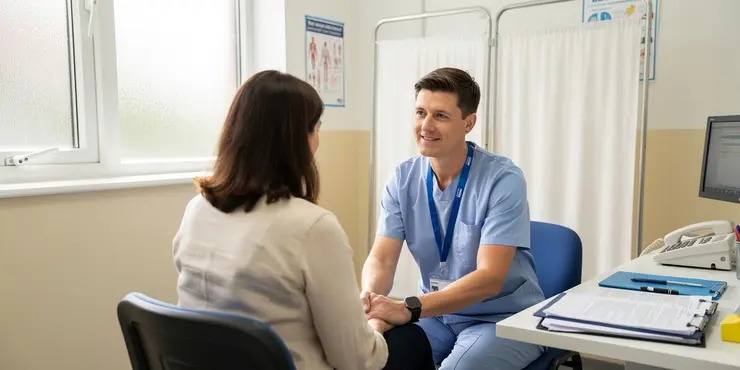
Is the £500 cost of living payment taxable?
Relevance: 28%
Introduction
HIV, or Human Immunodeficiency Virus, is a condition that affects the immune system. In the past, a diagnosis of HIV was often seen as a death sentence, but advances in treatment now allow people with HIV to lead normal lives. This progress, particularly significant for those in the UK, means that with proper care and management, individuals with HIV can enjoy a quality of life comparable to those without the virus.
Advancements in Treatment
In recent decades, HIV treatment has seen remarkable advances, particularly with the development of antiretroviral therapy (ART). ART helps suppress the virus to undetectable levels, preventing the progression to AIDS and reducing the risk of transmitting the virus to others. In the UK, HIV treatment is available free of charge through the National Health Service (NHS), ensuring that everyone can access life-saving medications regardless of their financial situation.
Living with HIV in the UK
Thanks to ART, people living with HIV can enjoy many of the same life opportunities as those who are HIV-negative. They can work, study, have families, and pursue personal goals. The stigma surrounding HIV has also decreased as public awareness and understanding have improved, though challenges still exist. Support services, both online and in-person, offer emotional and practical help to those living with HIV and their families.
Healthcare and Regular Check-ups
Regular healthcare visits are crucial for managing HIV effectively. In the UK, individuals with HIV are encouraged to have routine check-ups to monitor their health and treatment progress. These appointments can help detect and address any side effects or complications early, thereby maintaining a high quality of life. Healthcare providers in the UK are well-equipped to offer guidance, support, and information to those living with HIV.
Family Life
With effective treatment, people living with HIV can have a normal family life. Couples where one or both partners are living with HIV can conceive children naturally with little to no risk of transmission, thanks to methods like sperm washing and the use of ART. Education and outreach programs have also improved societal attitudes towards families affected by HIV, fostering an inclusive environment.
Conclusion
In conclusion, people living with HIV in the UK can lead normal, fulfilling lives due to the significant advances in medical treatment and care. By adhering to prescribed treatments, having regular check-ups, and accessing available support services, individuals with HIV can maintain their health and well-being. This progress not only extends life expectancy but also enhances the quality of life, dispelling many of the misconceptions historically associated with the condition.
Introduction
HIV is a virus that affects the body’s defense system. It used to be very serious, but now people can live normal lives with it because of new medicines. In the UK, people with HIV can live well if they take care of themselves and get the right treatment.
New Treatments
HIV treatment has gotten much better. There is a special medicine called ART that keeps the virus very low. This means it doesn’t turn into a more serious illness called AIDS, and it’s harder to spread to other people. In the UK, you can get this medicine for free, so everyone can stay healthy.
Living with HIV in the UK
People with HIV can do many things like anyone else. They can go to work, go to school, have families, and do what they love. There is still some misunderstanding about HIV, but people know more about it now. There are places online and in-person that help people with HIV and their families feel better and get support.
Healthcare and Visits to the Doctor
It is very important to see the doctor often if you have HIV. In the UK, people with HIV should have regular check-ups to stay healthy and to make sure the treatment is working well. Doctors and nurses can help and give advice if you need it.
Family Life
People with HIV can have families like anyone else. There are ways to have children safely if one or both parents have HIV. Programs also help people understand and support families with HIV. This makes it easier for these families to feel accepted.
Conclusion
To sum up, people with HIV in the UK can live happy and full lives because of better medicine and care. It is important to take the right medicine, see the doctor regularly, and use support services. This helps people with HIV stay healthy and have a long and good life. Many old ideas about HIV are now changing with these improvements.
Frequently Asked Questions
Can people with HIV live a long life?
Yes, with proper medical treatment and care, people with HIV can live long and healthy lives.
Is it possible for someone with HIV to have a family?
Yes, people with HIV can have families. There are medical interventions available to prevent transmission to partners and babies.
Can people with HIV work in any profession?
Yes, people with HIV can pursue careers in any field. HIV is not a barrier to employment when properly managed.
Do people with HIV need to take medication for life?
Most people with HIV need to take antiretroviral therapy (ART) for their entire life to maintain their health and prevent HIV transmission.
Can people with HIV engage in physical exercises?
Yes, regular exercise is beneficial for people with HIV and can help maintain overall health.
Is travel restricted for people living with HIV?
Most countries do not have restrictions, but it is important to check the entry requirements of specific countries. Generally, people with HIV can travel freely.
Can people with HIV have a healthy sex life?
Yes, with effective treatment and precautions, people with HIV can have a healthy sex life without transmitting the virus.
Is it safe for people with HIV to have cosmetic procedures?
People with HIV can safely undergo cosmetic procedures if their condition is well-managed and they consult with their healthcare provider.
Can people with HIV participate in sports?
Yes, people with HIV can participate in sports and physical activities. They should take standard precautions to avoid injuries.
Can a person with HIV donate organs?
People with HIV may be able to donate organs to other HIV-positive recipients under specific conditions.
Do people with HIV have dietary restrictions?
There are no specific dietary restrictions for people with HIV, but maintaining a balanced diet is important for overall health.
Can people with HIV adopt children?
Yes, people with HIV can adopt children. Adoption eligibility varies, and it's important to check with specific adoption agencies and legal requirements.
Is it possible for people with HIV to serve in the military?
Policies vary by country, but in some places, people with HIV can serve in the military with certain restrictions and monitoring.
Can someone with HIV live without symptoms?
Yes, people with HIV may not show symptoms for many years, especially if they are on effective treatment.
Is mental health support important for people with HIV?
Yes, mental health support is crucial for people with HIV to manage the psychological aspects of living with a chronic condition.
Can antiretroviral therapy (ART) have side effects?
Yes, ART can have side effects, but they are usually manageable. Patients should discuss any concerns with their healthcare provider.
Do people with HIV need regular medical check-ups?
Yes, regular medical check-ups are important to monitor the condition, manage treatment, and address any health issues.
Can someone with HIV stop medication if they feel well?
No, stopping medication can lead to resistance and health deterioration. It's important to continue treatment even if symptoms are not present.
How often should people with HIV have a viral load test?
Viral load tests are typically done every 3 to 6 months to monitor treatment effectiveness.
Can people with HIV receive vaccinations?
Yes, people with HIV should receive vaccinations based on medical recommendations to protect against infections.
Can people with HIV live a long life?
Yes, people with HIV can live a long and healthy life. They need to see a doctor and take their medicine every day.
Helpful tools and techniques:
- Take medicine on time.
- Visit the doctor regularly.
- Eat healthy food.
- Exercise and stay active.
Yes, with the right medicine and care, people with HIV can live a long and healthy life.
Can someone with HIV have a family?
Yes, people with HIV can have a family. Here are some ways to make it safe:
- Go to the doctor. They can help you stay healthy.
- Take medicine every day. This can help stop the virus.
- Talk to your family. They can support you.
It is always good to ask for help if you need it. There are people and tools that can help you have a happy family.
Yes, people who have HIV can have families. There are medicines that can help stop HIV from spreading to partners and babies.
Can people with HIV have any job?
Yes, people with HIV can have any job. HIV does not stop people from working.
Here are some things that might help:
- Tell your boss what you need to stay healthy.
- Take your medicine regularly to feel well.
- Talk to a doctor for more advice.
Yes, people with HIV can have any job they like. HIV does not stop you from working if you take care of it properly.
Do people with HIV need to take medicine forever?
When someone has HIV, they need to take special medicine. This helps them stay healthy. They should take this medicine every day, even if they feel good.
It is important to keep taking the medicine so HIV does not make them sick. The medicine helps them live a long and healthy life.
Some things can help:
- Ask your doctor questions if you are unsure about your medicine.
- Use a pill box or alarm to remember to take your medicine on time.
- Talk to friends or support groups for extra help.
People with HIV usually need to take special medicine every day for their whole life. This helps them stay healthy and stops them from giving HIV to other people.
Can people with HIV do exercises?
If you have HIV, it is okay to do exercises. Moving your body is good for you. It can help you feel better and stay strong.
Before starting any exercises, talk to your doctor or a nurse. They can tell you what exercises are safe for you.
Here are some tips to help you:
- Start slowly and do a little bit at a time.
- Find exercises you like, like walking, dancing, or yoga.
- Rest when you feel tired.
If you need help, you can ask a friend or a fitness trainer.
Yes, exercising regularly is good for people with HIV. It helps keep them healthy.
Can people with HIV travel?
People with HIV can travel to most places. But some countries have special rules. It's good to check the rules before you go.
Here are some tips that can help:
- Ask your doctor for advice.
- Bring your medicine with you.
- Check online for travel advice for people with HIV.
Most countries do not have any rules stopping you. But, it is important to check the rules of the country you want to visit. Usually, people with HIV can travel without problems.
Can people with HIV have a safe and happy sex life?
If you have HIV, you can still have a safe and happy sex life. Here are some tips:
- Take your medicine every day. This helps you stay healthy and keeps your partner safe.
- Use a condom. Condoms help stop HIV from spreading.
- Talk to your doctor. They can give you advice and answer your questions.
If you need more help, you can:
- Ask a family member or friend to support you.
- Look for information online. Make sure it's from a trusted source.
- Join a support group to talk with others who have HIV.
Yes, with the right treatment and care, people with HIV can have a happy and healthy sex life without passing on the virus.
Is it safe for people with HIV to have beauty treatments?
People with HIV can have beauty treatments, but it's important to be careful.
Here are some tips:
- Talk to your doctor before having any beauty treatments.
- Tell the beauty professional about your HIV, so they know and can take care.
- Make sure the place is clean and uses fresh, new tools for each person.
- Ask lots of questions if you are not sure about anything.
Using pictures, videos, or asking someone you trust to come with you can help you feel more comfortable.
People who have HIV can get beauty treatments safely.
They should make sure their health is looked after well.
It is important to talk to their doctor before doing the treatment.
Can people with HIV play sports?
Yes, people with HIV can play sports.
Playing sports is good for their health.
Here are some tips to help:
- Talk to a doctor before starting a new sport.
- Choose sports you like and feel comfortable with.
- Stay safe and follow the rules of the game.
- Listen to your body and rest if you feel tired.
If you want help reading, you can:
- Ask a friend or family member to read with you.
- Use audiobooks to listen to the text.
- Try apps that read aloud to help understand words.
Yes, people who have HIV can play sports and do physical activities. They should be careful to not get hurt.
Can someone with HIV give their organs to help others?
People with HIV can help others by giving their organs, but there are special rules. Doctors check if the organs are safe and healthy. Some places have special programs for this.
If you want to know more, you can ask a doctor or use simple websites to learn. Tools like picture cards or easy-read booklets can also help.
If you have HIV, you might be able to donate organs to other people who also have HIV. This can happen if certain rules are followed.
Can people with HIV eat all foods?
Yes, people with HIV can eat most foods. Eating healthy is important for everyone.
Here are some tips to help:
- Eat lots of fruits and vegetables. They are good for you.
- Try to eat whole grains like brown bread or rice.
- Have some protein like meat, eggs, beans, or nuts.
- Drink plenty of water. It keeps you healthy.
If you have questions about food, ask a doctor or a nurse. They can help you make the best choices for your health.
If you have HIV, you can eat any food you like. There are no special rules for what you can or can't eat. But eating a good mix of healthy foods is important to keep your body strong.
Can people with HIV become adoptive parents?
Yes, people with HIV can adopt children. They can become loving parents just like anyone else. If you have HIV and want to adopt, here are things to think about:
- Talk to adoption agencies: They know the rules and can help you.
- See a doctor regularly: This helps you stay healthy.
- Join support groups: Meet other parents with HIV for advice and friendship.
Remember, being a good parent is about love and care, not about having HIV.
Yes, people with HIV can adopt children. The rules for adoption can be different in each place, so it's important to talk with adoption agencies and understand the laws.
Can people with HIV join the military?
People with HIV may want to join the military. Rules about this can be different in each country. It is important to check the rules where you live.
Here are some tips that might help:
- Talk to a doctor to learn more about HIV and health. They can give you advice.
- Look for information online from trusted sources. This can be websites from the government or health groups.
- Ask someone you trust to help you read the information if it’s hard to understand.
Rules are different in each country. In some places, people with HIV can join the army, but there are some rules they need to follow, and doctors will check on them.
Can a person with HIV feel okay?
Yes, a person with HIV can feel okay and not show signs at first. This means they might not feel sick or different. Getting tested and talking to a doctor is important. A doctor can help explain and give medicine that helps people with HIV feel well for a long time.
Here are some helpful tools and tips:
- Talking to a doctor: Doctors know a lot about helping people with HIV.
- Medicine: Medicine can make people with HIV feel healthy.
- Support groups: Talking to others who have HIV can help.
Yes, people with HIV might not feel sick for a long time. This can happen if they take medicine that really helps.
Is it important for people with HIV to get help for their feelings?
People with HIV might feel sad or worried. Getting support for their feelings can help them feel better. Talking to someone they trust, like a doctor or friend, is a good idea.
Here are some things that might help:
- Talking to a counselor who listens and understands.
- Joining a support group with others who have HIV.
- Doing activities that make them happy, like drawing or sports.
- Relaxing with deep breaths or music to feel calm.
Feeling good on the inside can help them stay strong and healthy on the outside too.
Yes, people with HIV need help for their feelings and thoughts. This support helps them feel better about living with a long-term illness.
Can HIV medicine (ART) cause side effects?
Yes, taking HIV medicine called antiretroviral therapy (ART) can sometimes cause side effects. Side effects are other feelings in your body that happen when you take medicine. They can be good or bad.
Some people might feel dizzy, tired, or have an upset stomach. But not everyone gets these feelings. Most side effects go away after a while.
It's important to talk to your doctor or nurse if you feel any side effects. They can help you feel better or change your medicine.
You can also keep a small notebook to write down any side effects you notice. This can help you remember to tell your doctor.
Yes, ART can cause some side effects, but you can usually handle them. If you have any worries, talk to your doctor or nurse.
Do people with HIV need to see a doctor often?
Yes, people with HIV need to see a doctor often. This helps them stay healthy.
Here are some things that can help:
- Make a plan with the doctor for when to have check-ups.
- Take notes or ask someone to help you remember what the doctor says.
- Use a calendar or phone reminder for appointments.
Yes, it's good to see the doctor regularly. This helps to check if everything is okay, keep track of your treatment, and fix any problems.
Can a person with HIV stop taking their medicine if they feel better?
If someone with HIV feels healthy, they might think they can stop their medicine. But it is very important to keep taking it. The medicine helps keep the virus under control.
Even if they feel good, stopping the medicine can make the virus stronger. This can make the person sick again.
If they have questions, they should talk to their doctor. Their doctor can help them understand what is best for their health.
Using reminders or setting alarms can help remember to take the medicine every day.
No, stopping your medicine can make it less effective and make you feel worse. It's important to keep taking your medicine, even if you feel better.
How often should people with HIV get a viral load test?
People with HIV need to get a viral load test. This test checks how much virus is in their blood.
Doctors usually say to have this test every 3 to 6 months. This helps make sure the medicine is working well.
It is important to talk to the doctor. They will tell you the best time to get the test. The doctor will help keep you healthy.
If you need help with reading or understanding, you can:
- Ask someone to explain it to you.
- Use simple words and pictures to learn.
- Talk to a doctor or nurse for more help.
Doctors do a test every 3 to 6 months to see how well the treatment is working.
Can people with HIV get vaccines?
Yes, people with HIV can get vaccines.
Vaccines help keep you healthy by stopping diseases.
Always talk to your doctor before getting a vaccine.
Your doctor can tell you which vaccines are safe for you.
Using picture charts or talking with a nurse can help you understand more.
Yes, people with HIV should get vaccines. This helps protect them from getting sick. They should ask their doctor which vaccines are best for them.
Useful Links
This website offers general information and is not a substitute for professional advice.
Always seek guidance from qualified professionals.
If you have any medical concerns or need urgent help, contact a healthcare professional or emergency services immediately.
Some of this content was generated with AI assistance. We’ve done our best to keep it accurate, helpful, and human-friendly.
- Ergsy carfully checks the information in the videos we provide here.
- Videos shown by Youtube after a video has completed, have NOT been reviewed by ERGSY.
- To view, click the arrow in centre of video.
- Most of the videos you find here will have subtitles and/or closed captions available.
- You may need to turn these on, and choose your preferred language.
- Go to the video you'd like to watch.
- If closed captions (CC) are available, settings will be visible on the bottom right of the video player.
- To turn on Captions, click settings .
- To turn off Captions, click settings again.
More Items From Ergsy search
-

Can people with HIV lead normal lives?
Relevance: 100%
-

What is HIV?
Relevance: 66%
-

What is HIV / AIDS?
Relevance: 64%
-

What is the difference between HIV and AIDS?
Relevance: 60%
-

HIV - My Story - Florence | NHS
Relevance: 59%
-

HIV and pregnancy | NHS
Relevance: 55%
-

Are there vaccines available for HIV?
Relevance: 55%
-

Sexual Health - HIV Testing
Relevance: 54%
-
What role does stigma play in the HIV epidemic?
Relevance: 53%
-

How is HIV diagnosed?
Relevance: 52%
-

How is HIV transmitted?
Relevance: 52%
-

How does HIV affect the immune system?
Relevance: 51%
-

Is HIV only a concern for certain groups of people?
Relevance: 51%
-

How can HIV be prevented?
Relevance: 50%
-

How often should someone get tested for HIV?
Relevance: 50%
-

Can HIV be transmitted through insect bites?
Relevance: 47%
-
Can HIV be transmitted through blood transfusions?
Relevance: 46%
-

Is it safe for a partner of someone with HIV to have children?
Relevance: 46%
-

Can HIV be cured?
Relevance: 42%
-

What are the symptoms of HIV?
Relevance: 38%
-

What is AIDS?
Relevance: 38%
-

What is the normal pension age for firefighters in the UK?
Relevance: 37%
-

What is the normal range of intraocular pressure?
Relevance: 35%
-

Heart Failure : The normal heart
Relevance: 34%
-

Is it normal to feel sad in a relationship sometimes?
Relevance: 34%
-

Is peeling a normal part of sunburn recovery?
Relevance: 33%
-

What is antiretroviral therapy (ART)?
Relevance: 33%
-

Can you live without an appendix?
Relevance: 32%
-

Living with Bipolar Disorder
Relevance: 32%
-
How can I tell the difference between normal teenage secrecy and potential grooming?
Relevance: 32%
-

Is the Living Wage Foundation's rate the same as the National Living Wage?
Relevance: 31%
-
Living with dementia | NHS
Relevance: 31%
-

What are normal blood pressure ranges?
Relevance: 31%
-

When is it safe to return to normal activities after a concussion?
Relevance: 30%
-

What is the normal pattern of cortisol secretion throughout the day?
Relevance: 29%
-

When is it safe to return to normal activities after a concussion?
Relevance: 29%
-

Who is eligible for the National Living Wage?
Relevance: 28%
-

How is the National Living Wage calculated?
Relevance: 28%
-

UK national living wage increase 2026
Relevance: 28%
-

Is the £500 cost of living payment taxable?
Relevance: 28%


